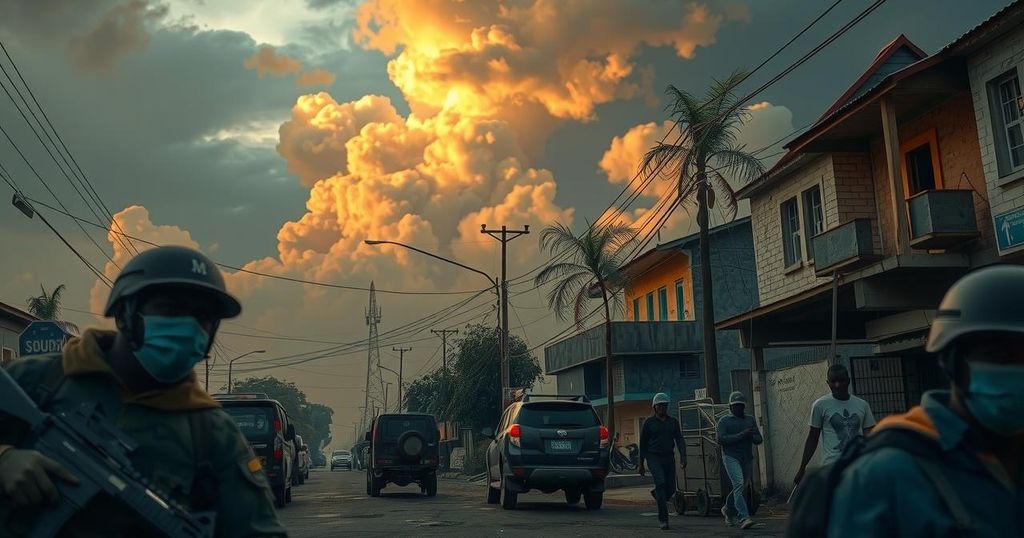Mozambique Police Confront Opposition Leader with Tear Gas Amid Election Tensions
Mozambique police utilized tear gas against opposition leader Venancio Mondlane amidst rising tensions following a contentious election, during which political violence escalated with the recent assassinations of opposition officials. The ruling party, Frelimo, faces accusations of electoral fraud as protests grow against its longstanding governance.
In Mozambique, heightened post-election tensions have led police to deploy tear gas against opposition leader Venancio Mondlane and his supporters during a press engagement in Maputo. This incident occurred in the vicinity of a recent violent attack that resulted in the deaths of two key opposition figures. On the evening preceding the incident, Mondlane’s lawyer, Elvino Dias, and a senior official from his party were fatally shot by unidentified assailants. Mondlane, who was a principal challenger in the October 9 presidential election, expressed his outrage against what he termed fraudulent elections. Earlier in the day, he had called for a nationwide closure to protest the election outcomes. Video footage shared by Mondlane depicted a chaotic scene, showcasing him, his aides, and several journalists taking cover as the tear gas was released. Local media reported that one journalist sustained injuries during the ordeal. The elections appear to favor the ruling party, Front for the Liberation of Mozambique (Frelimo), which is expected to maintain its long-standing governance since the nation’s independence from Portugal in 1975. Preliminary results suggest that Frelimo candidate, Daniel Chapo, is significantly leading Mondlane, who ran as an independent candidate with the backing of the emerging Podesa party. The killings of opposition leaders have aggravated the political climate, with Podesa alleging that the attacks on their officials were politically motivated. In light of these developments, the European Union has urged a thorough investigation into the murders, a sentiment echoed by United Nations Secretary-General António Guterres.
The political landscape in Mozambique has been extensively shaped by the ruling party, Frelimo, which has dominated since the country gained independence in 1975. Recently, the nation experienced significant electoral strife, characterized by allegations of voter fraud and violent assaults on opposition members. The slaying of notable figures in opposition raises grave concerns regarding political violence and safety in an already tense post-election environment. The response from law enforcement, particularly the use of tear gas against protestors and political leaders, further exacerbates fears of authoritarian governance and suppression of dissenting voices. International bodies, including the EU and the UN, are now advocating for accountability concerning these violent incidents and ensuring a transparent electoral process.
In summary, the situation in Mozambique remains precarious following the recent elections, marked by allegations of misconduct and violent reprisals against officials from opposition parties. The ongoing tensions reflect a broader struggle against established political structures, with calls for justice and accountability gaining momentum both domestically and internationally. The implications of these events are profound, potentially influencing Mozambique’s political future and the integrity of its electoral processes.
Original Source: apnews.com




Post Comment